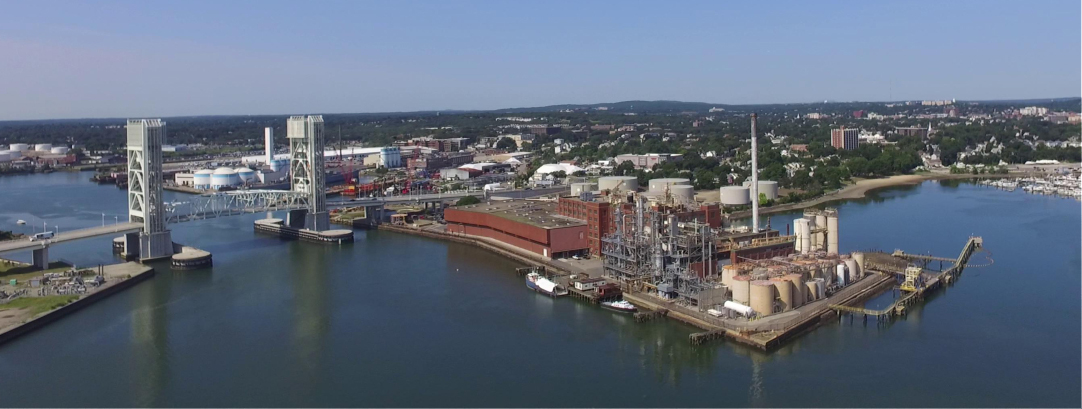Many of our customers are large global companies that have embraced the concept of environmental and social performance, and expect their suppliers to do the same. This reinforces the business value of our programs and involves all levels of the organization in the commitment to achieve our goals.
Posts By Danielle Wentworth - Page 1
Recent Posts
"There is something incredibly nostalgic and significant about the annual cascade of autumn leaves.” – Joe L. Wheeler
Topics: Sustainability, ACI, fatty acid, supply chain management
October 1st celebrated Manufacturing Day, where we celebrate those who proudly stand behind the goods and services made in America. Twin Rivers Technologies is one of the largest Oleochemical manufacturers and suppliers in North America. We provide solutions that deliver superior quality, service, and value to our customers. The relationships we have developed with our customers and within our communities are based on open communications, trust, and delivering only one standard of performance -- "the best in all that we do."
Topics: manufacturing, manufacturing jobs
Topics: manufacturing, hiring, employment, manufacturing jobs
State of Freight Overall
- Not enough truck drivers in the market to handle capacity
- Until the driver market increases, we will see capacity crunch.
- Drivers are seeking lanes where amenities are available (parking, showers, …).
- Industries are not able to maintain adequate inventory - lots of spot orders.
- Truck carriers are trying to give assets to their established customers, so new customers are being turned down
Truck
- Smaller carriers are handling more loads, but it's not enough coverage to make up for larger carriers not handling amount of loads they have in the past
- Freight has always been more difficult to secure in the Northeast, but now more than ever
- Rates have increased substantially - customers will be paying more
- Tolls have also increased substantially for trucks.
- Many accessorials have increased, along with FSC, adding to the overall rate increase. Tank cleaning, steaming and driver detention are the ones with the largest increases
- Paying more does not guarantee capacity
- Drivers are dictating more today where they want to go
- Compartment trucks are extremely difficult to secure and carriers not investing in this equipment - it is expensive and has more temperature issues
- Kosher and food grade loads are also extremely difficult to secure. Most kosher & food grade equipment is already in use
- Dedicated is preferred by some carriers, but only if they have trailers. If too much dedicated business is serviced, it removes overall trailers for all customers
- Carriers need to go to certain locations to keep their system in balance
- Texas and Louisiana lanes are easier to cover rather than Georgia, North Carolina & South Carolina - drivers make more money on longer hauls
- CSXT secured Quality, one of the largest carriers in the country, for servicing their yards and this took away capacity to companies
Rail
- Securing available railcars for lease has been more difficult than just as little as six months ago
- Rail rates increase each year, there is very little room for negotiation
- Fuel surcharges (FSCs) have increased each month. CSX has gone from $0.11/mile in January 2021 to $0.33/mile in August 2021
What TRT is doing
- We are in the process of leasing additional railcars
- Asking customers if they can supply their own railcars for pick-up of product
- Identifying any customers that can take rail rather than trucks and converting when we can work it
- Clean railcars coming back from shop are earmarked for a fleet so they are not used carelessly
- Continuing daily Unconfirmed Loads meetings for trucks where we prioritize customers. Salesperson and customer input and cooperation is critical
- Cold calling new carriers for any capacity
- Customers are looking for their own trucks which is showing that customers are starting to get involved in securing their loads
- Keeping terminals stocked with product is key
- Investigating terminal options for lanes/products that make sense and have the biggest impact on easing capacity
- Creating a survey for drivers to complete as they leave TRT to understand their experience and what amenities they would want
- Distributing weekly demurrage reports for our railcars, so we can remind our customers to keep them moving
- Carriers added additional driver training locations. They believe enrollment will increase once bonus unemployment benefits run out. Until new drivers enter the market, there will be a capacity crisis
- Follow-up conference calls with our carriers
- Exploring intermodal rates again for the lanes over 1,000 miles
Topics: trucking industry, Freight Imbalance, railcars, intermodal



